
© Sean Sutton
Goja Jemea, Sinjar, Iraq, March 31, 2019.
Kasim and Nadim Mohama faced a harrowing reality when they escaped an attack by Daesh on August 3, 2014, leaving their home and farm behind. Forced to flee to the mountains, they endured eight days of scarcity before a corridor to Syria provided their escape route. The attack devastated their once-thriving agricultural life, resulting in the loss of crops and most of their livestock. Despite returning to find their homes looted and their possessions gone, they resiliently reclaimed their land. Amidst this turmoil, music emerged as a powerful symbol of cultural resistance, uniting the returning families and signalling a hopeful revival of their disrupted lives and agricultural community.
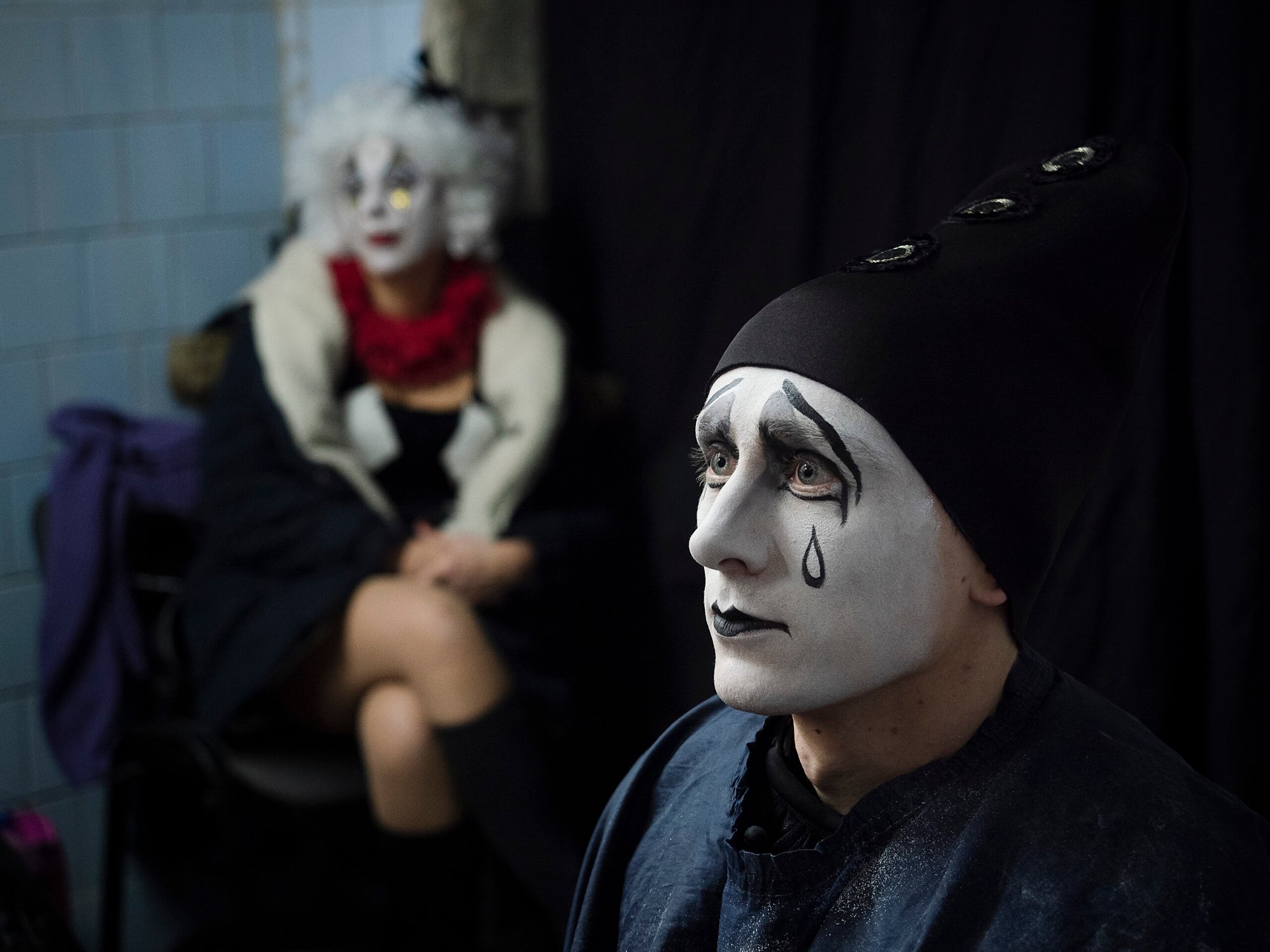
© Gaelle Girbes
Ukraine, Kyiv, December 7, 2018.
Backstage at the National Oleksandr Dovzhenko Film Centre, actors Dmytro Olyinkyk and Khrysina Synelnik are preparing for the premiere of ‘Numbers.’ The play directed remotely by imprisoned filmmaker Oleg Sentsov with the help of producer Anna Palenchuk, who assisted him in conveying his directorial guidance from prison. Despite his 20-year sentence in a Siberian penal colony, Oleg’s work echoed loudly, denouncing oppression. Through the creation of ‘Numbers,’ Oleg Sentsov’s friends aimed to fortify his spirit during his imprisonment, providing an escape through artistic expression. The play symbolized resistance, depicting a society trapped under dictatorship, mirroring the dehumanization of prisoners.
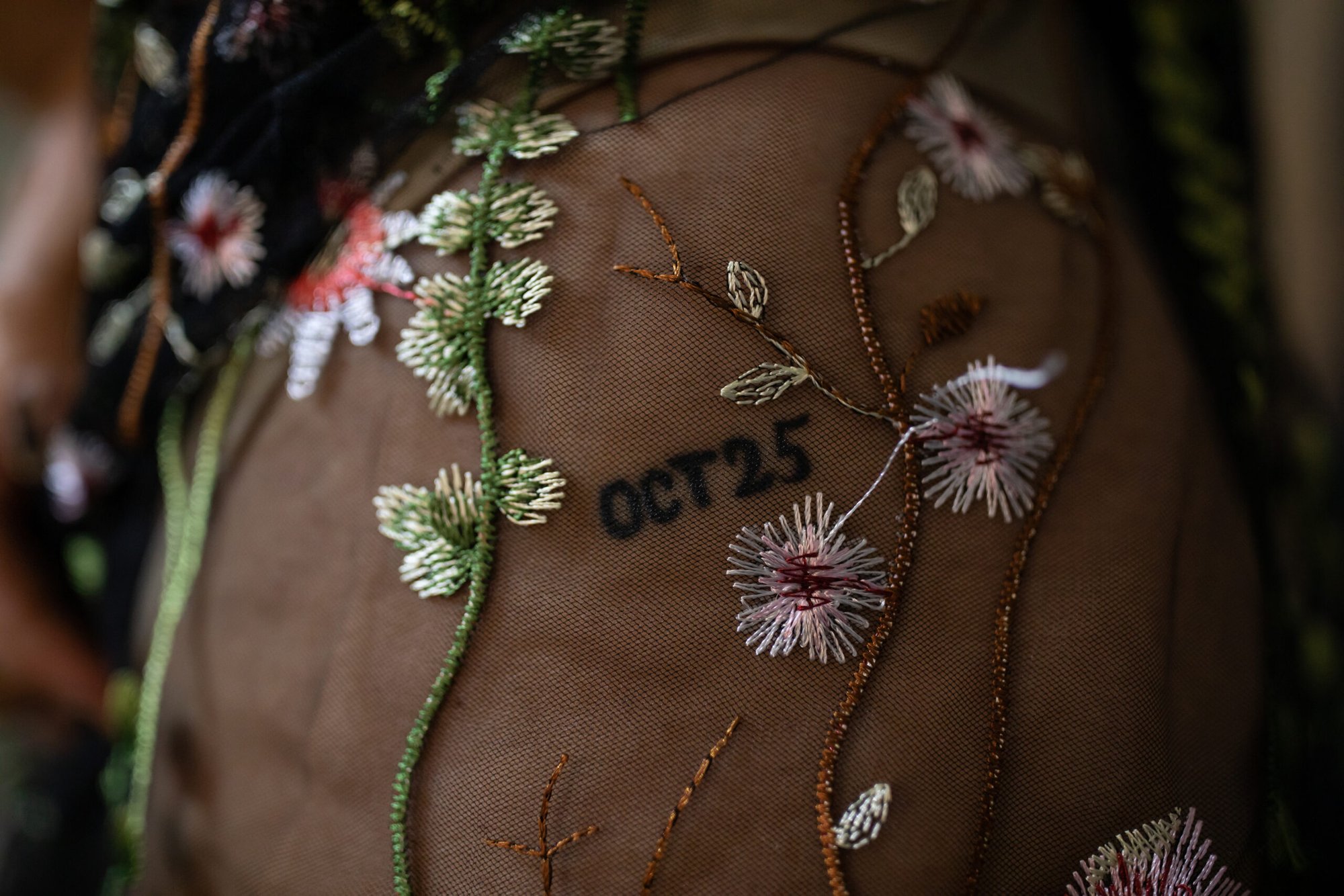
© Andrea DiCenzo
Baghdad, Iraq, February 28, 2020.
A woman shows off her “Oct25” tattoo on her bum cheek. Starting on 25 October 2019, the Iraqi October Revolution, known as the Tishreen Movement, resonated with young people throughout federal Iraq who were fed up with widespread corruption, unemployment, and political sectarianism.
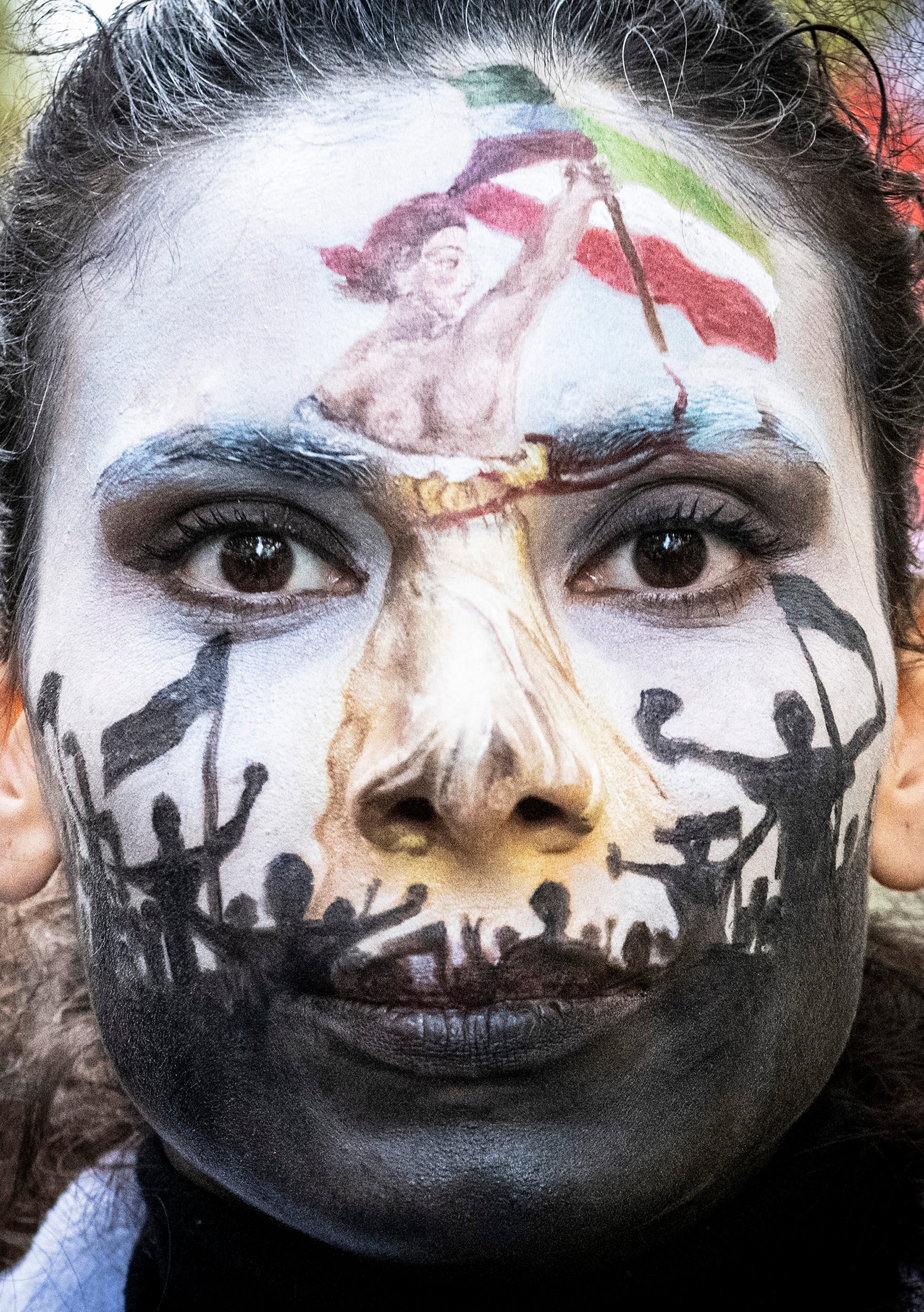
© Hamid Azmoun
France, Paris, October 2, 2022.
Demonstrators in the streets of Paris to support the Iranian people and to condemn the repression in Iran. France, Paris, October 2, 2022.
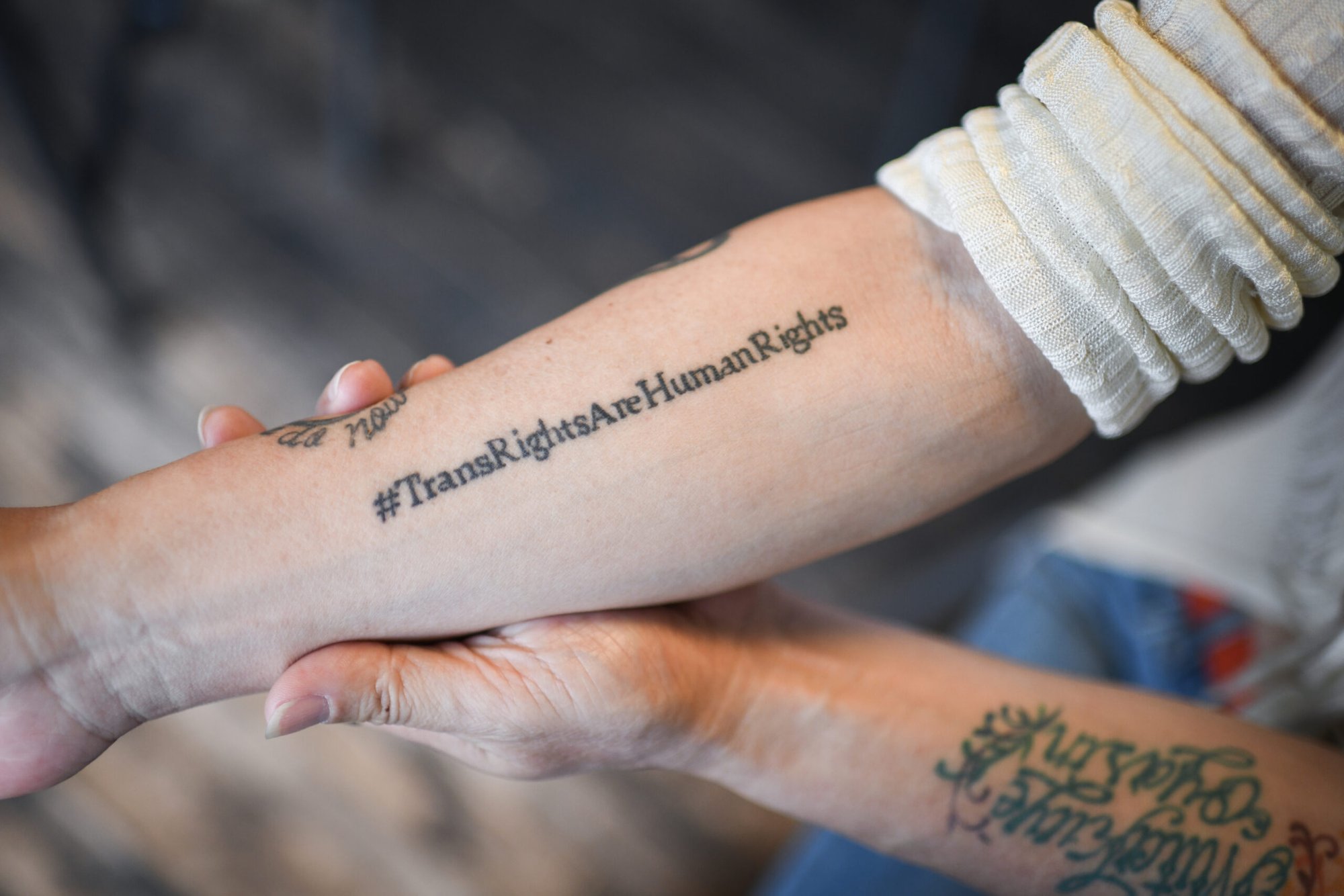
© Noriko Hayashi
Hiroshima, Japan, April 7, 2023.
Like many socially conservative Asian nations, Japan remains a hostile place for lesbian, gay, bisexual, transgender and queer people. Social taboos have kept many in Japan’s LGBTQ community largely invisible, fearful to come out to their loved ones or employers. The majority of Japanese do not believe the rights of LGBTQ people are protected in their country. Kei Okuda’s tattoo advocates for her community. She transitioned to life as a woman four years ago, after spending 31 years as a married father of 4 children. Okuda opened a local safe space, Chosen Family Shobara, in a small mountainous area in Hiroshima for anyone seeking support or who wants to learn about the LGBTQ community. It was a courageous challenge for her to start an advocate for the LGBTQ rights movement alone, not in the city, but in a more conservative rural area. “Rather than feeling like I was becoming a woman, I felt like I returned to who I really was.”
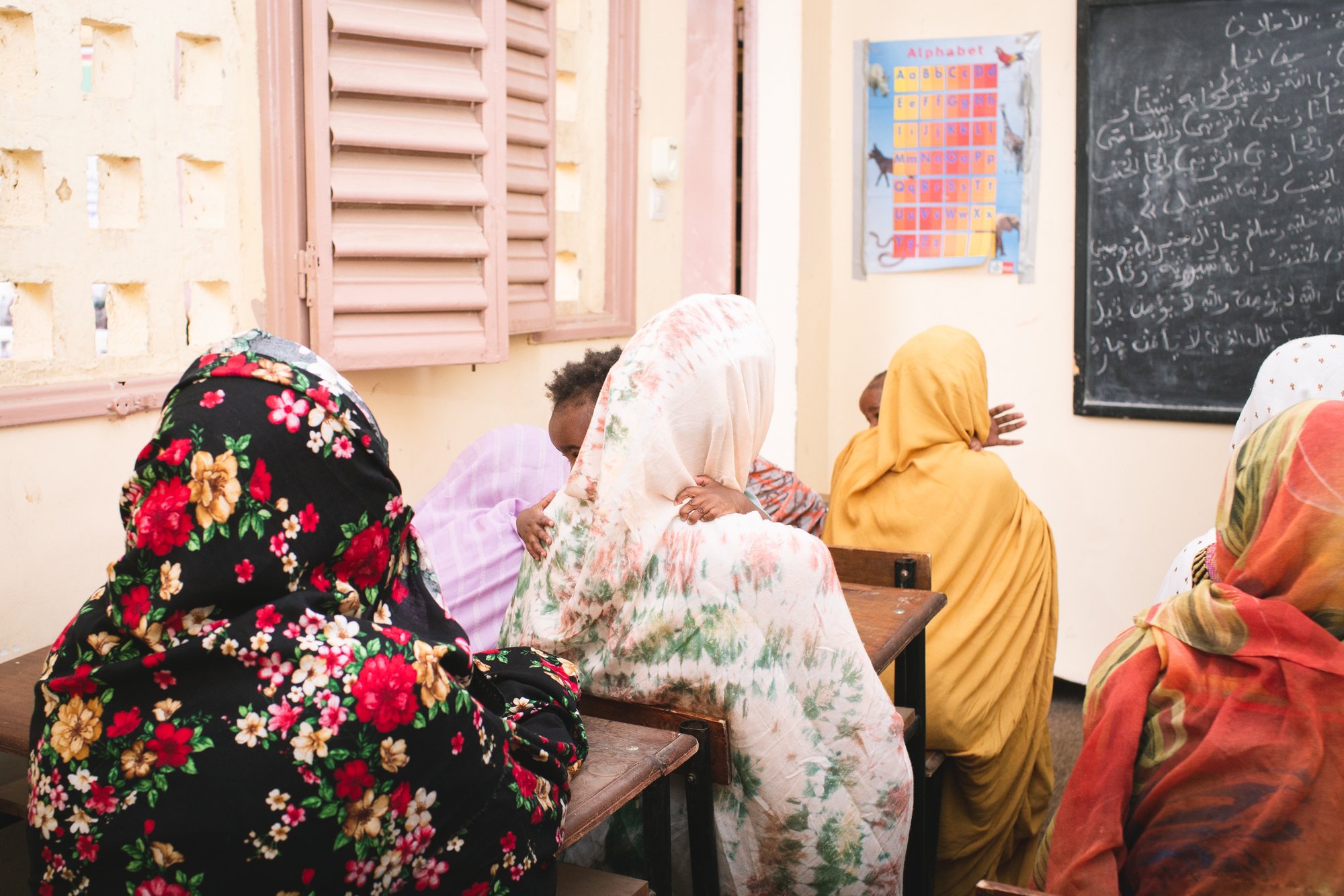
© Gaia Squarci
Nouakchott, Mauritania, January 10, 2023
Adolescent girls learn to read and write in Arabic at El Wava, a center in Nouakchott, Mauritania, some holding their children conceived in rape. The center offers legal assistance, psychological support and alphabetization to girls survivors of gender-based violence. Most of them are referred to the center after they press charges at the local police department. Some are as young as 11 or 12. El Wava is supported by UNFPA.
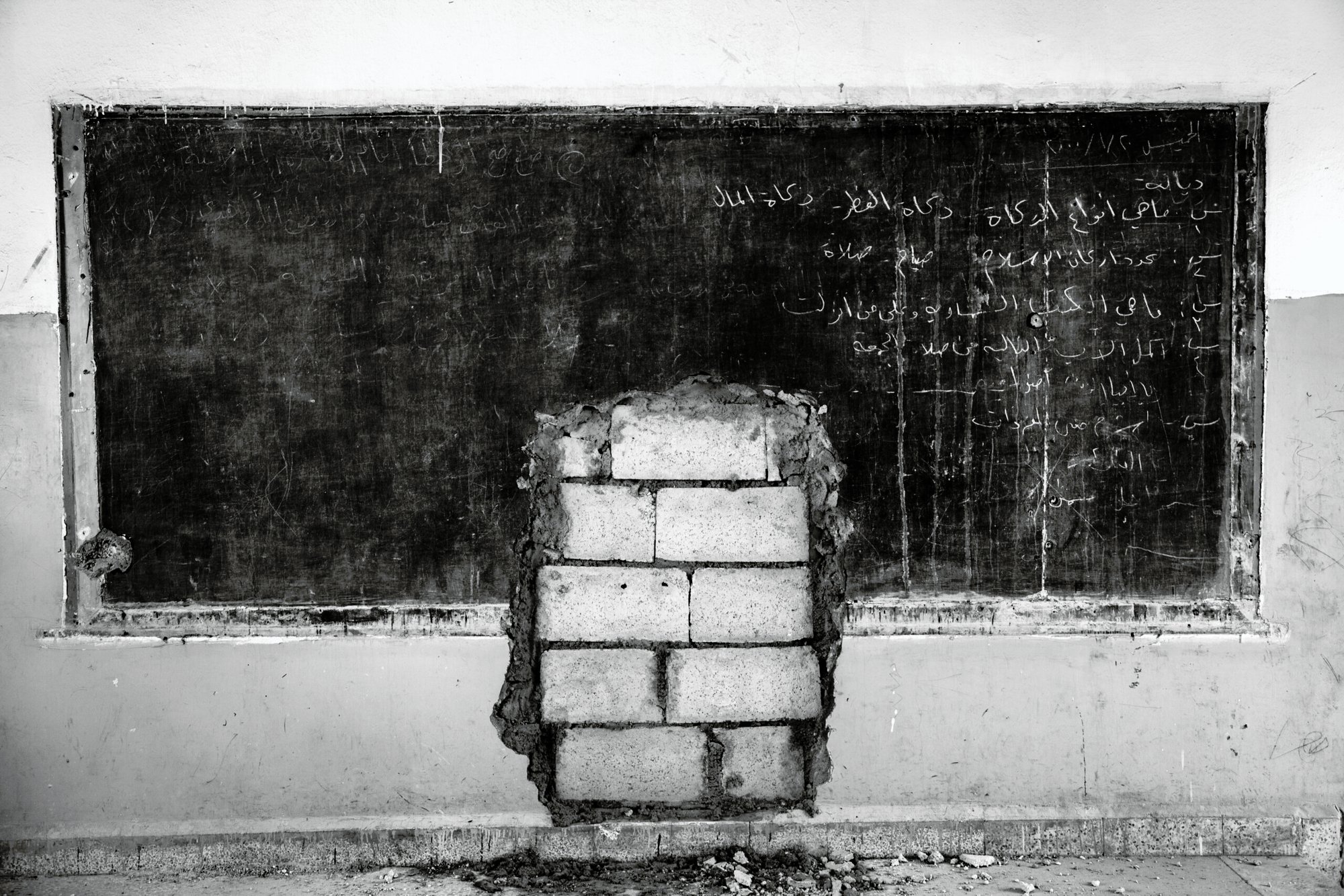
© Maryam Ashrafi
Kobane, North-Eastern Syria, May, 2016
One year after Kobani’s liberation, reconstruction continues. This school, once a battleground with a strategic hole for fighters, now embodies resilience. Its reconstructed classroom and blackboard symbolize the prioritization of education after conflict. Despite the remnants, efforts to mend the hole signify the community’s commitment to restoring not just buildings but hope and learning in a new educational system in Northern Syria.
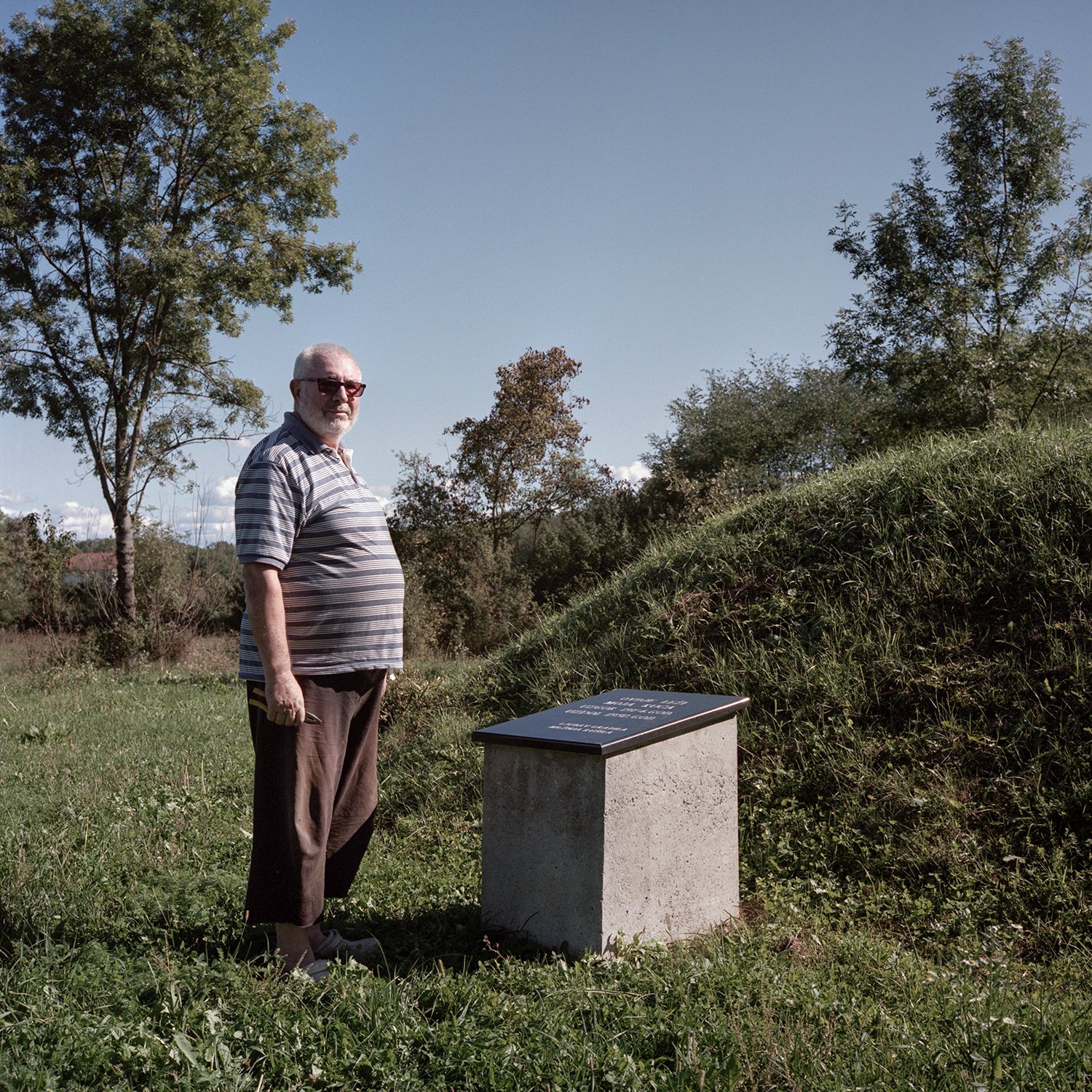
© Fabrice Dekoninck
Kevljani, Bosnia and Herzegovina, September, 2022.
Šerif Velić is a survivor of the Omarska concentration camp. Back from exile in Kevljani in 2001, he found that his house had been completely destroyed, as for all non-Serb inhabitants in the municipality of Prijedor. Before rebuilding it, he collected and buried the debris before covering it all with a mound of earth, thus erecting a mausoleum in memory of his own past. The commemorative plaque bears the inscription: “Built by love, destroyed by hate.” This image and the two other Dekoninck’s portraits below are from his recent photo book Between Fears and Hope (Hemeria, 2024).
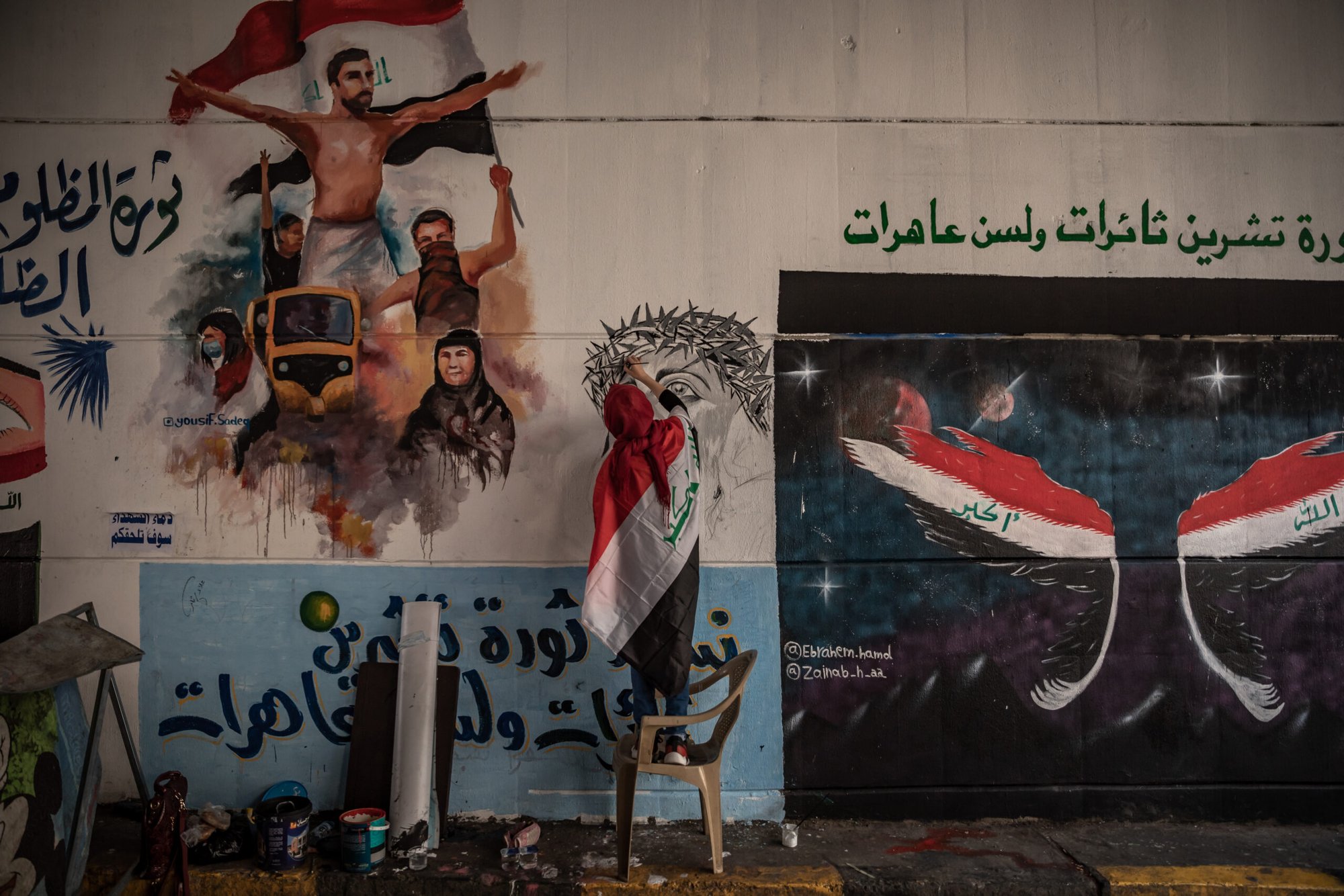
© Andrea DiCenzo
Baghdad, Iraq, November 14, 2023.
An antigovernment supporter and artist paints a new mural in the underpass underneath Baghdad’s Tahrir Square. The underpass has been filled with art, murals, and slogans in support of the antigovernment protest movement. The protests, ignited in Tahrir Square and spread spontaneously throughout the city and southern Iraq, began as demonstrations against poverty, corruption, and lack of public services but quickly swelled to demands of a complete overhaul of the Iraqi government. Iraqi citizens, particularly young people, feel like their government hasn’t done enough for them to lead fruitful, dignified lives.
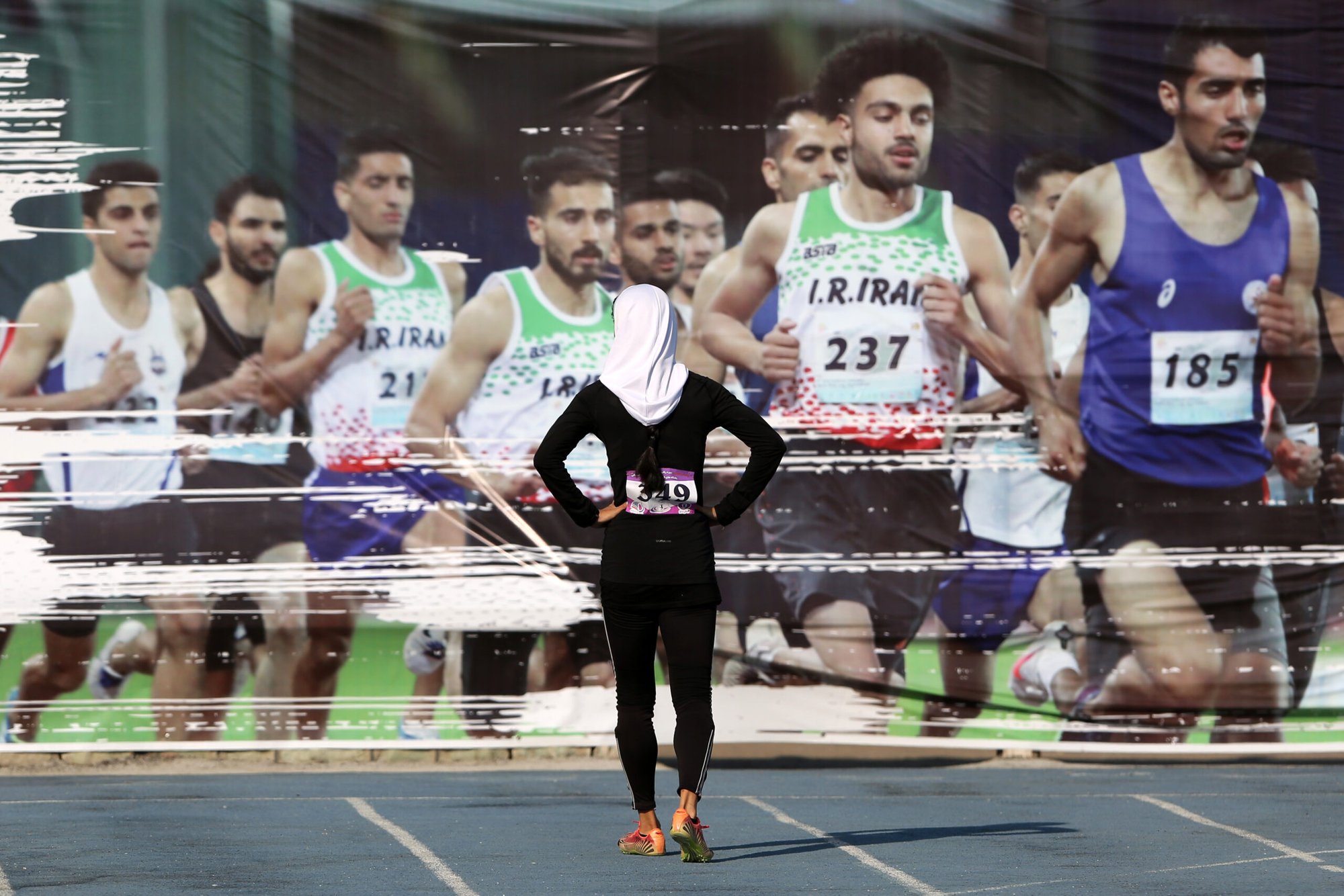
© Maryam Majd
Tehran, Iran, September 1, 2022.
‘Women Under the Shadow of Men’ Aftabe Enghelab Sport Complex. Women’s Track and Field Championship League. This time it is about ability. Over time, Iranian girls have acquired the ability to adapt to this cover (Hejab ) and today they have acquired the ability to compete and become champions in these conditions. In all women’s sports events, images of male champions are always used for sports advertisements. A problem that Iranian female athletes are deprived of. This picture shows a female athlete preparing to compete in the starting line with the mandatory hijab cover. She looks at pictures of male athletes in comfortable, standard competition clothes.
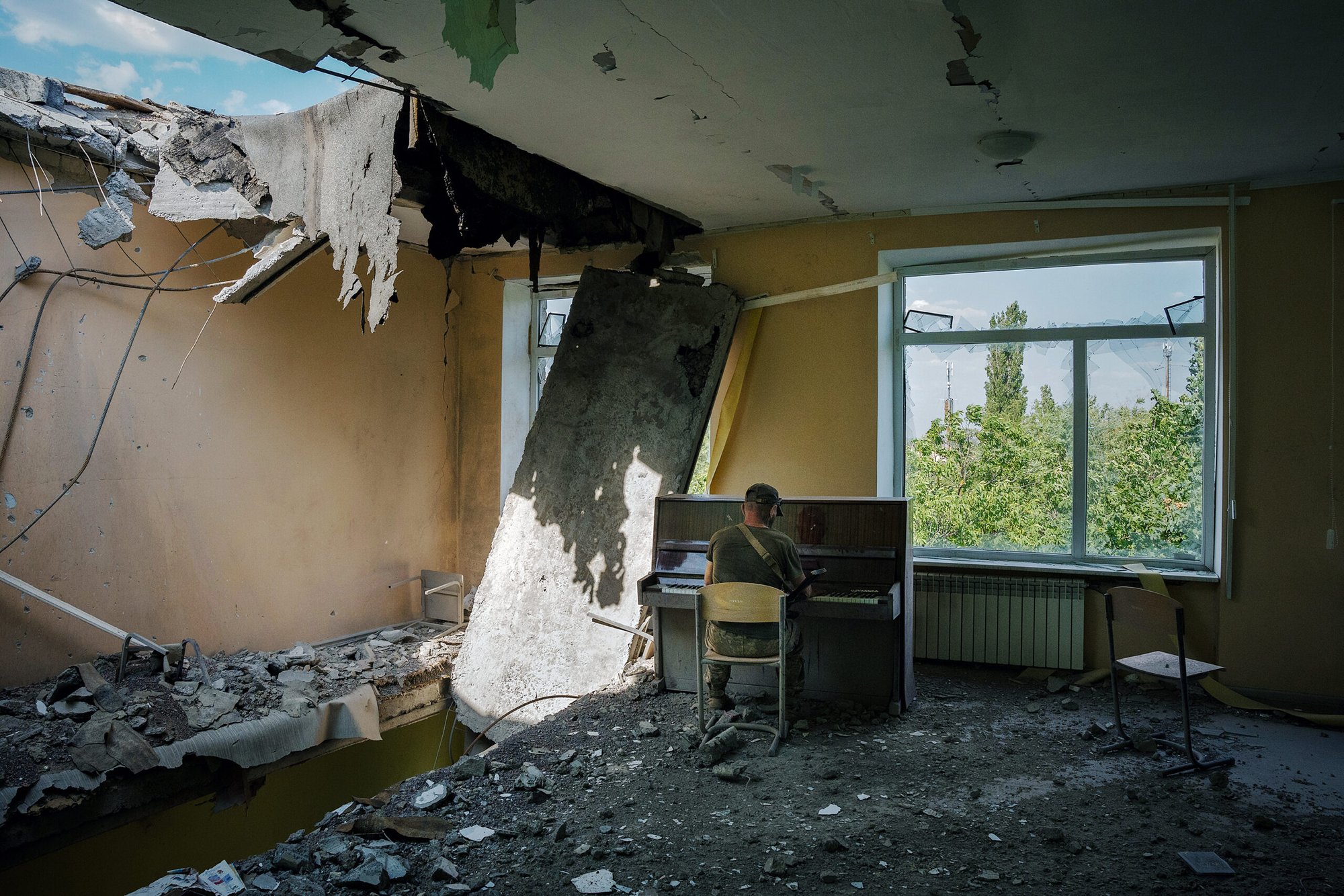
© Gaelle Girbes
Mykolaiv, Ukraine, July 7, 2022.
Oleh, call sign Psycho, Military Medic of ukrainian army, play piano in a school destroyed by Russian bombing on the front line in Mykolaiv, Ukraine. Target of Russian bombings since the beginning of the large-scale invasion of Ukraine by Russia on February 24, 2022, the key city of southern Ukraine, Mykolaiv, resists. Despite the lack of drinking water, and frequent rocket fire, the population is trying to cope, while a few dozen kilometers away, Ukrainian soldiers are protecting the city and trying to advance to retake the occupied city of Kherson from Russian forces.
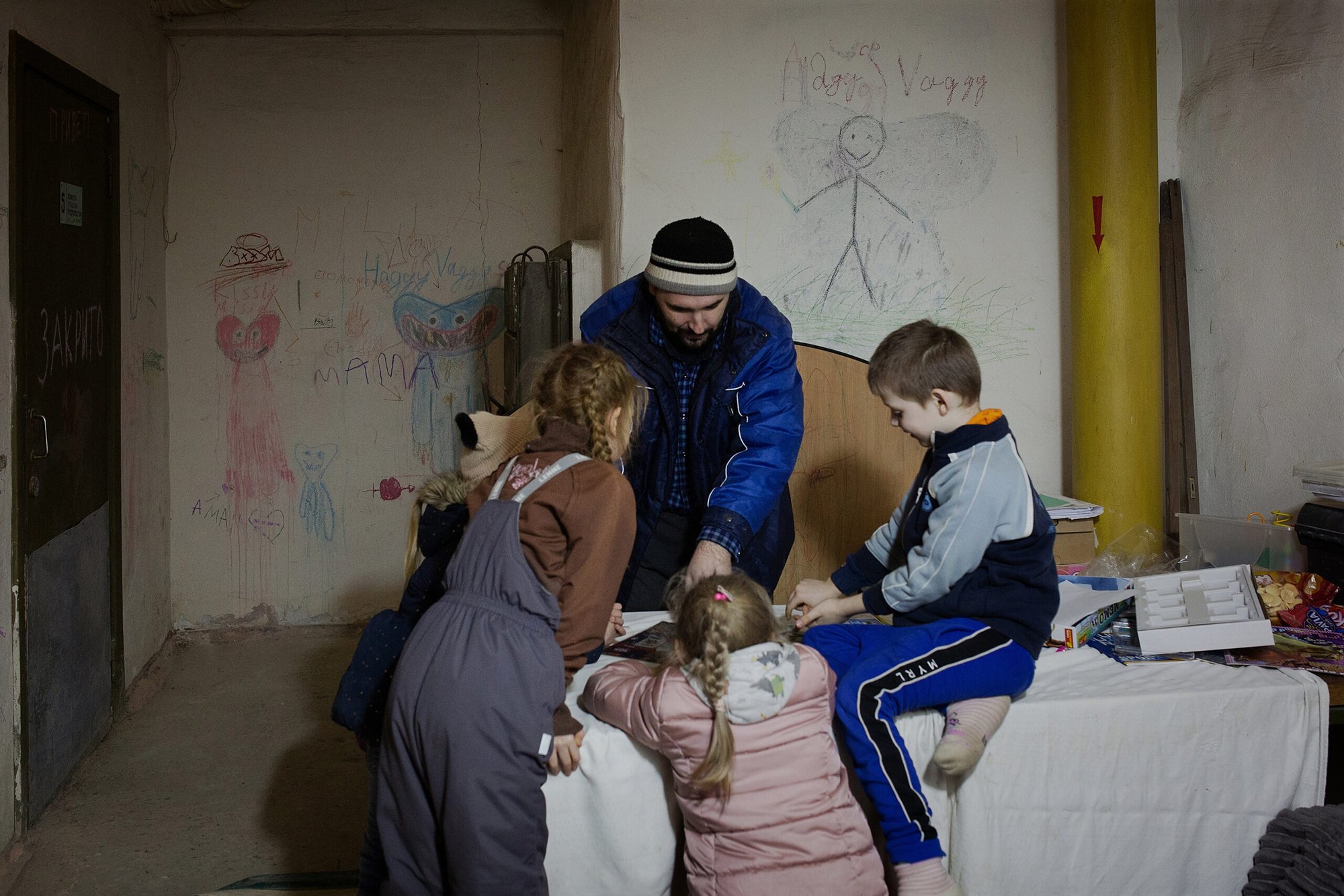
© Gaelle Girbes
Kharkiv, Ukraine, March, 2022.
People have taken refuge and are living in a former nuclear bunker in a factory north of Kharkiv. This morning a rocket fell in the courtyard of the building, in front of the entrance of the bunker.
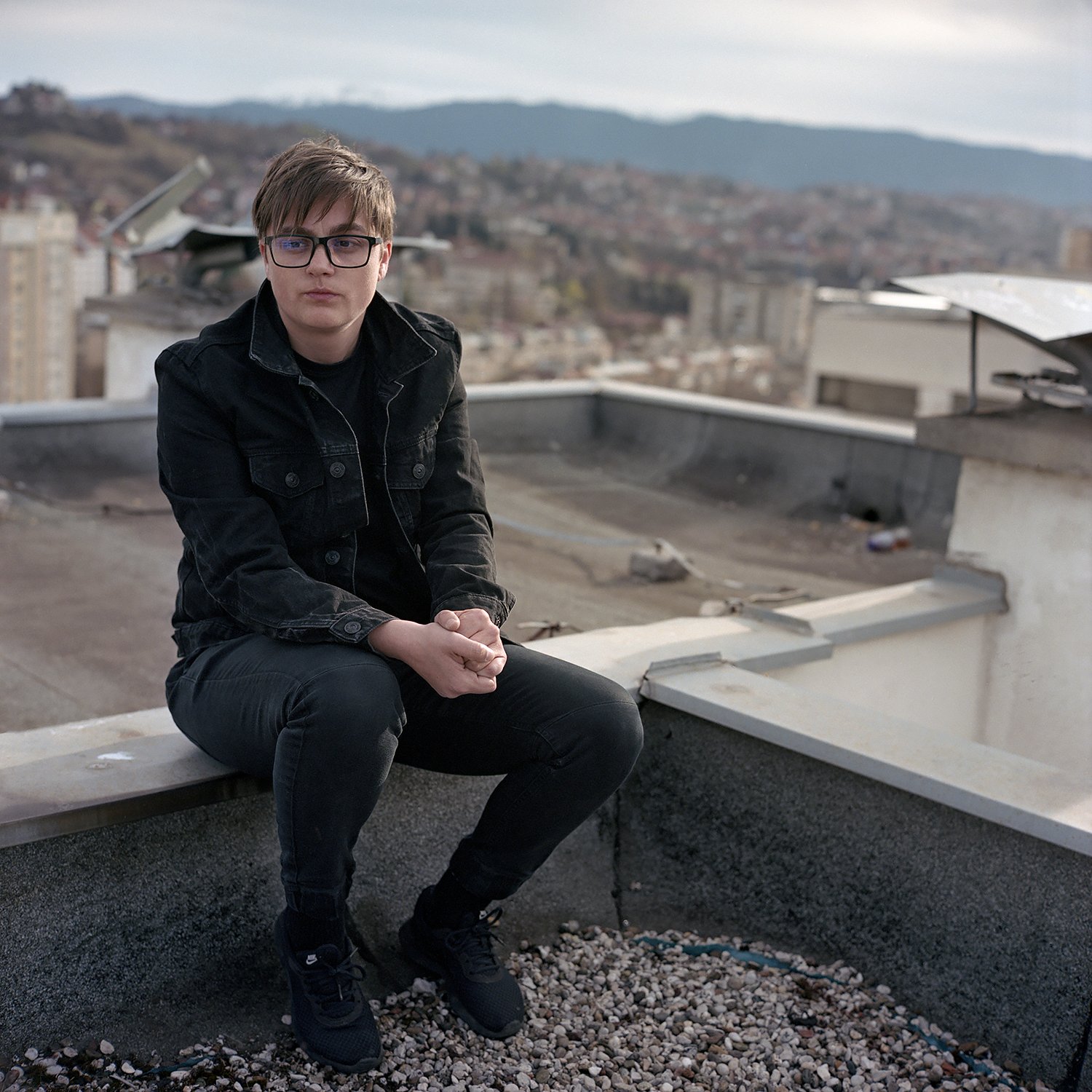
© Fabrice Dekoninck
Sarajevo, Bosnia and Herzegovina, April, 2022.
Ajna Jusić, 29, is an activist and feminist based in Sarajevo. She is the founder and President of the organisation Forgotten Children of War, dedicated to championing the rights of children born of wartime rape. Ajna herself was born as a result of war rape, which has fueled her determination to bring about legal and societal changes in Bosnia and Herzegovina. The primary objective of the NGO is to bring visibility to children born out of rape within Bosnia’s legal system, and in Bosnian society as a whole. To achieve this, her team and her use various creative mediums, such as art exhibitions, music, and theater performances to raise awareness about the existence of children born from such tragic circumstances. The NGO also engages in peacebuilding initiatives and works towards promoting respect and understanding among people with diverse traditions and religions in Bosnia.
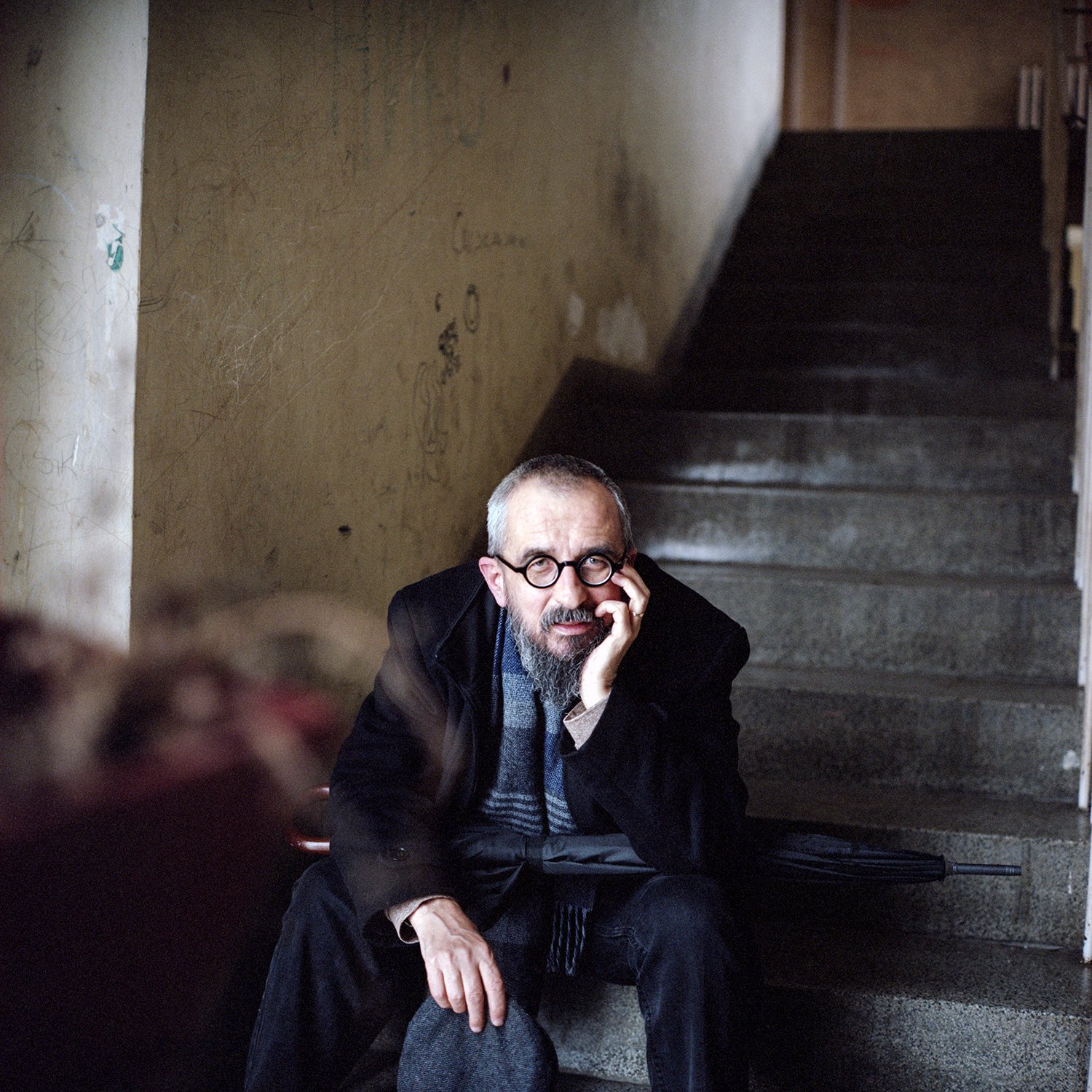
© Fabrice Dekoninck
Prijedor, Bosnia and Herzegovina, April, 2022.
Darko Cvijetić is a Bosnian-Serb writer, filmmaker, and poet, renowned for his novel Schindler Lift. In this book, he depicts the gradual disappearance of a once peaceful and tolerant way of life through the daily lives of residents in a multi-ethnic residential building in Prijedor. The story unfolds in the context of ethnical cleansing and is inspired by a real event: the accidental decapitation of a young Serb girl by the elevator door in the building. The novel portrays the violence and hatred that engulfed the residents of Prijedor at the onset of the war.
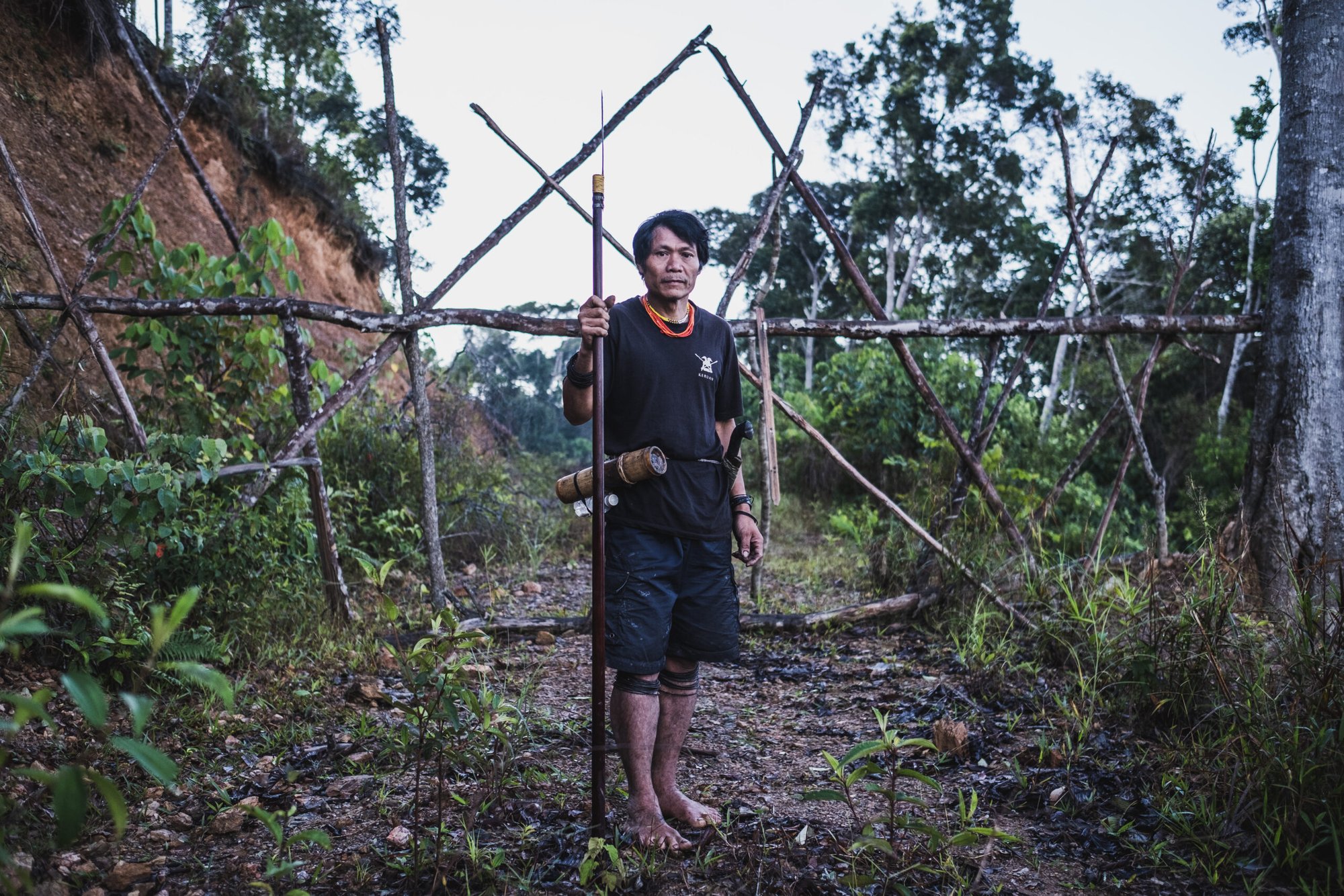
© Virginie Nguyen Hoang
Sarawak forest, Malaysia, February 18, 2020.
Peng Megut, a Penan leader of the Long Tevenga village, is posing in front of a house build as a blockade at a junction toward his village. This blockade is a result of years of battle against logging and palm oil companies willing to cut trees of what’s left of the primary forest in Sarawak (Borneo). This forest is also the habitat and the source of food of the Penan people. By building this house and with the help of the Bruno Manser Fonds and its lawyers, Peng and the other Penan from his village have successfully blocked a lumberjack road. Still, we don’t know how long it’s going to last.
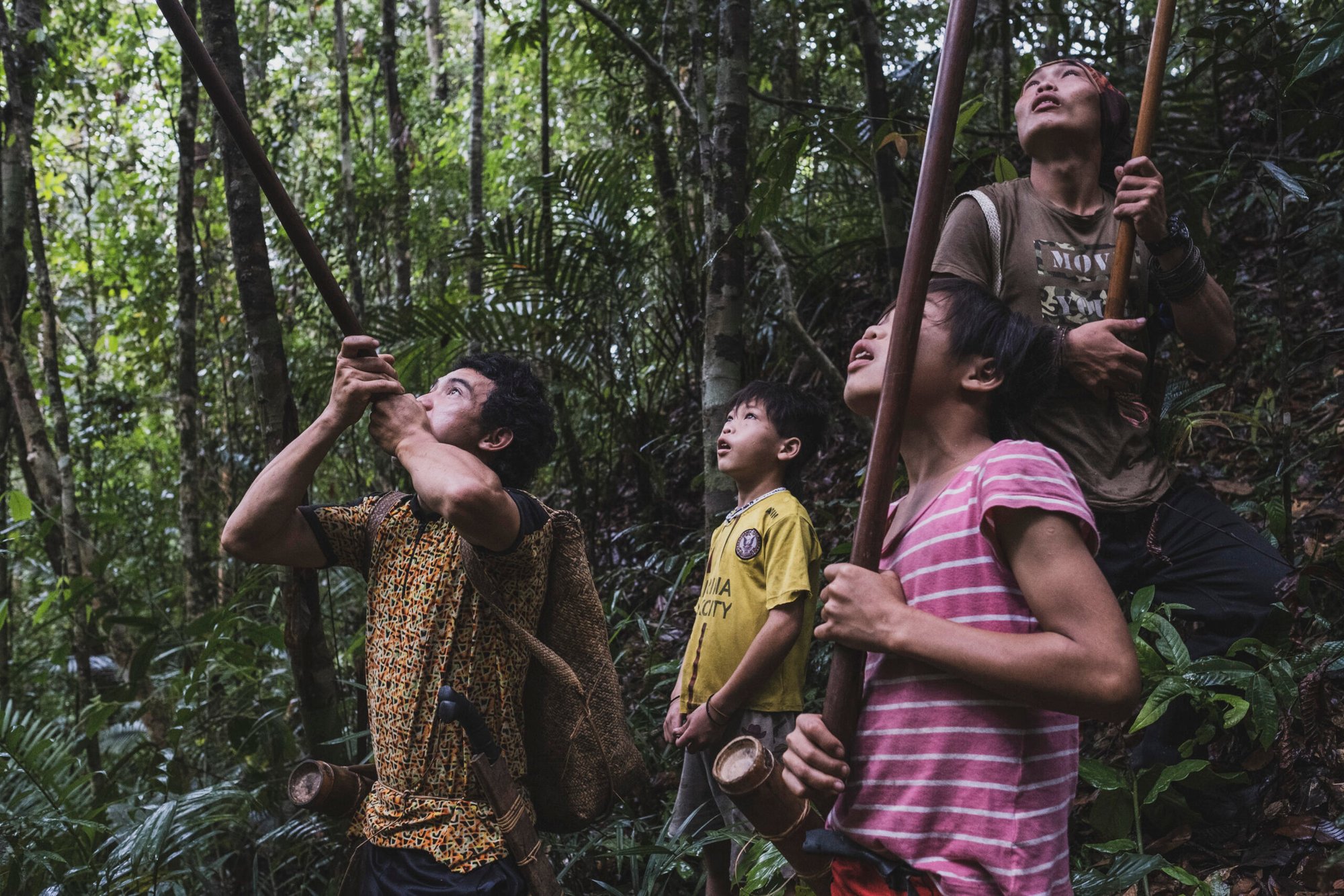
© Virginie Nguyen Hoang
Long Daun, Malaysia, February 12, 2020.
Ma is trying to catch a bird in a tree. The Penans traditional way to hunt is while using blowpipes and poisoned darts, but they do now use firearms too for the big animal like wild boars. Originally, the Penan were nomads who subsisted by hunting, fishing and gathering in the rainforest. Ma and his brothers-in-law next to him, are the members of one of the last Penan family that still living their traditional way of life despite the pressure of palm oil and timber companies that keep taking more lands in the Sarawak forest where they live.
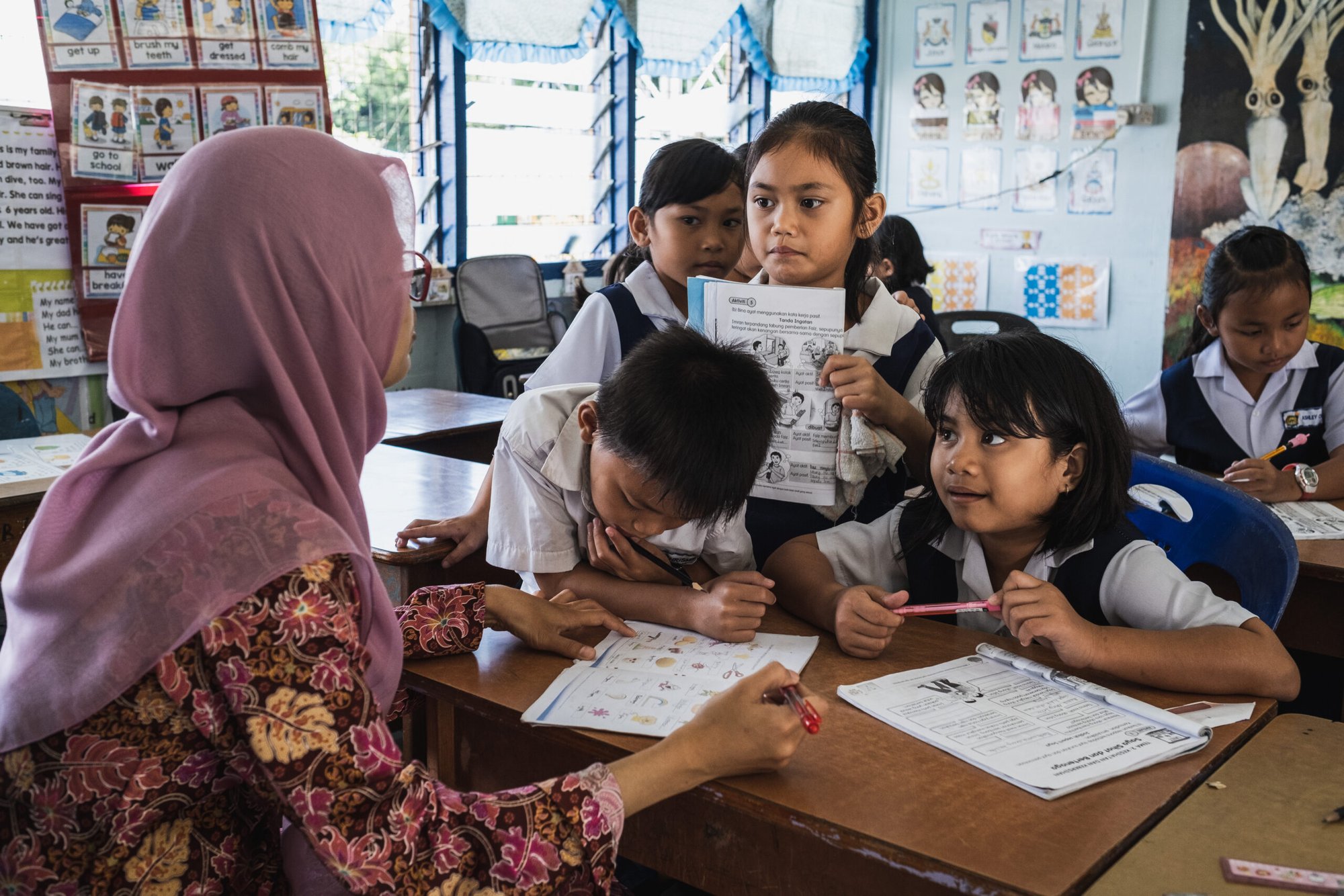
© Virginie Nguyen Hoang
Bateu Bungan, Malaysia, February 13, 2020.
A school has been established in the village for the children of the communities living in the Mulu area. For the children living too far away, there are dormitories until the weekend when they can go home. As the Penan that have been settled down in the Mulu region, the next generation follow the usual education path and go less and less in the rainforest.
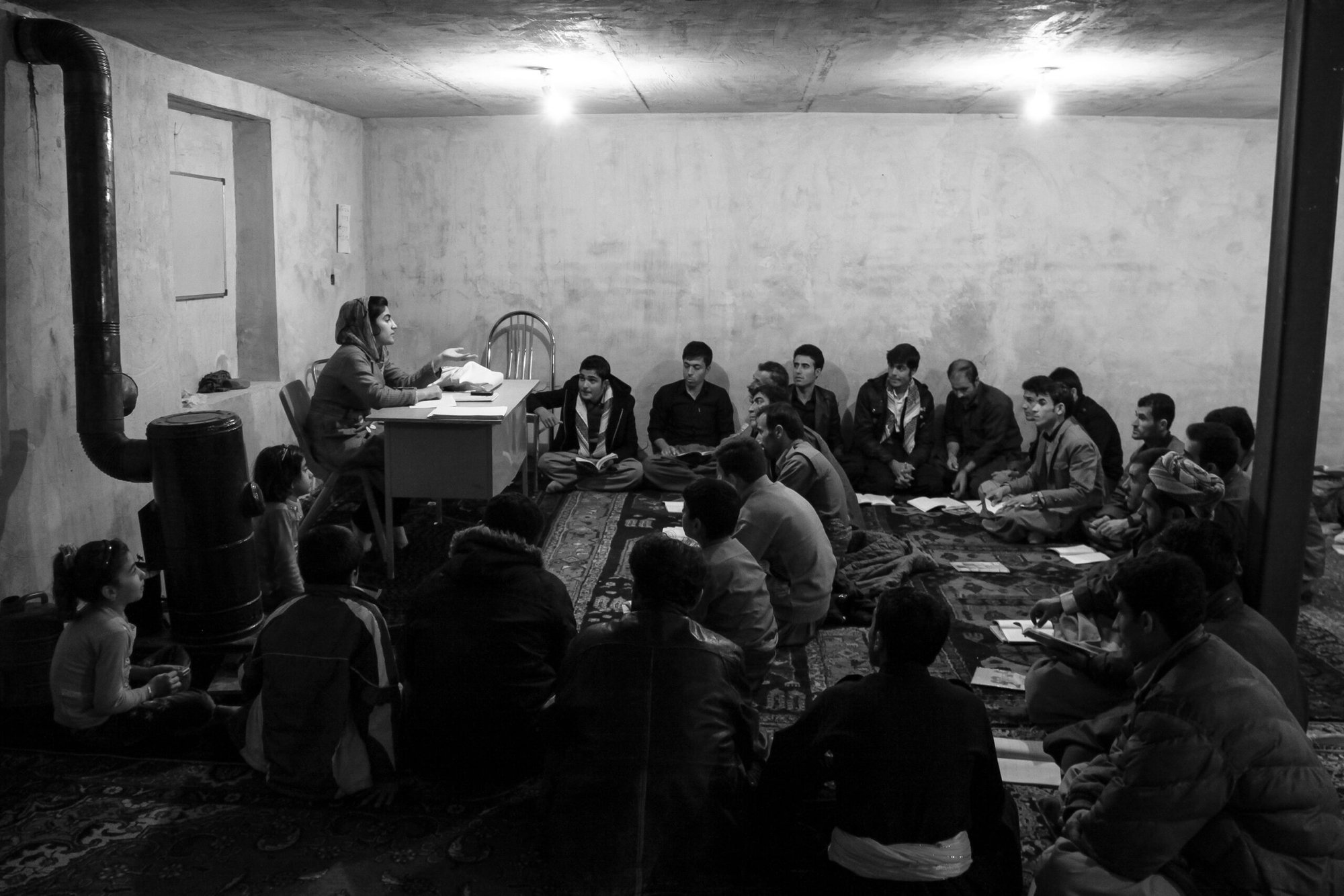
© Ebrahim Alipoor
Bukan, Iran, December 20, 2012.
Sousan, a 26-year-old woman, has dedicated the past 9 years to teaching her native language, Kurdish, to the inhabitants of remote and deprived villages in the Kurdish regions of Bukan. Despite the hardships she faced as a Kurdish woman on this path, she continues to persist in providing this education. Her classes take place in mosques or the elders’ houses within the villages, where women, men, and children all learn to read and write Kurdish together in one classroom. To date, Sousan has taught Kurdish in over 43 villages and remains determined to continue her journey.
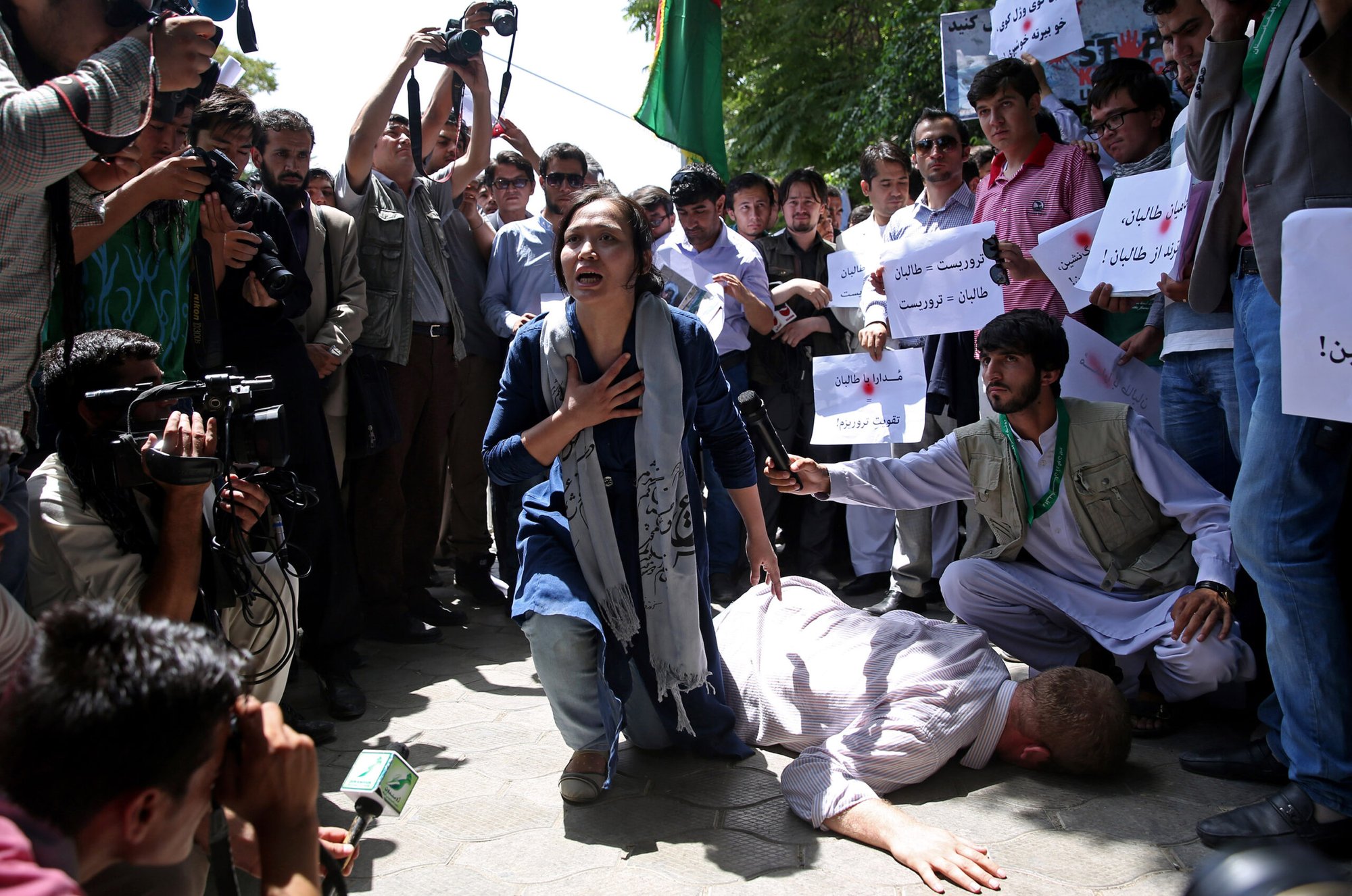
© Massoud Hosseini
Kabul, Afghanistan, July 27, 2014.
Afghan artists perform a show as members of civil society organizations participate in an anti-Taliban demonstration to rally against “civilians killing” during the holy month of Ramadan.
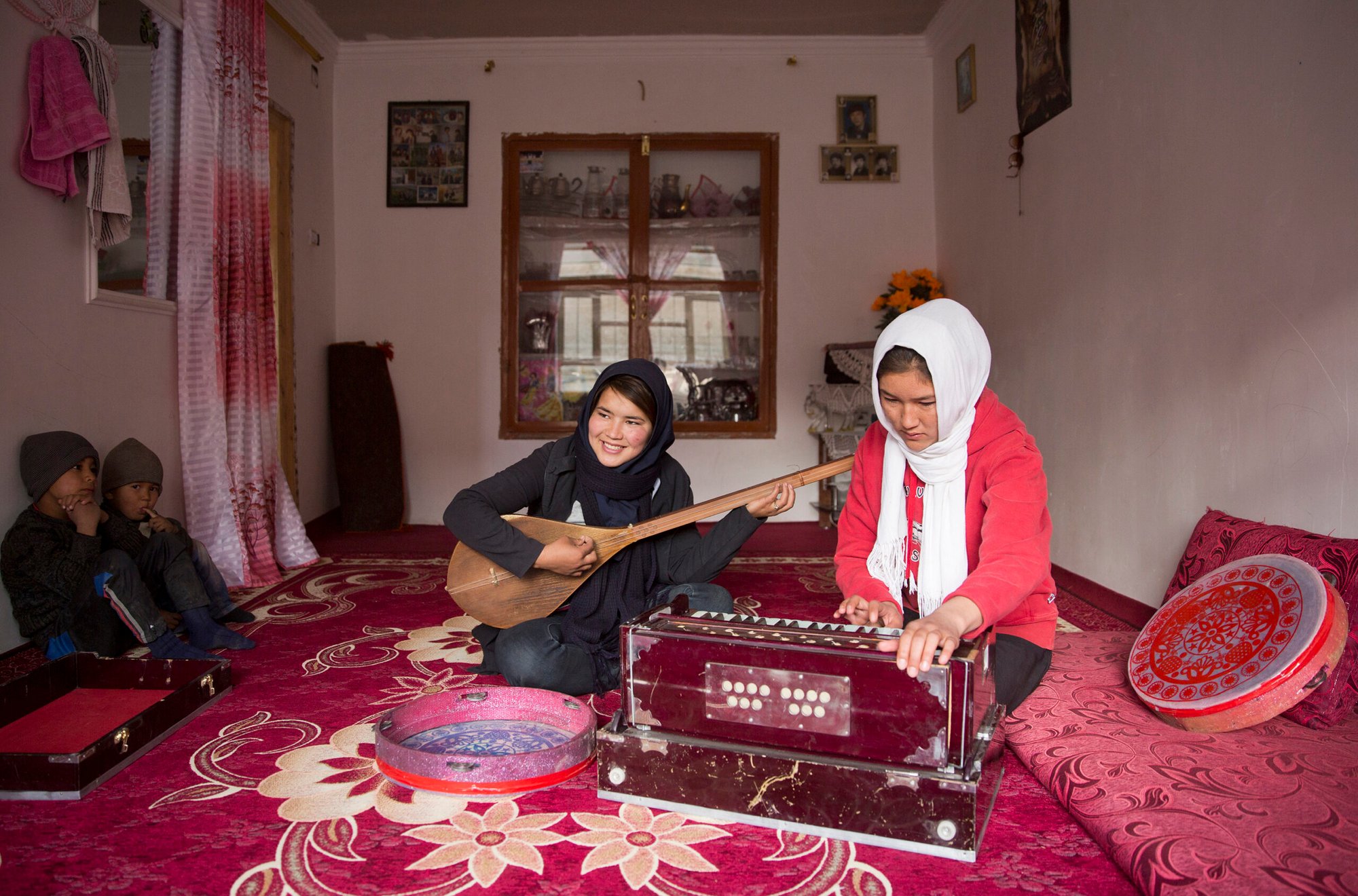
© Massoud Hosseini
Bamiyan , Afghanistan, July 27, 2014.
Two Hazara ethnic girls practice Afghanistan’s traditional musical instruments at their home in central Bamiyan city, Afghanistan.
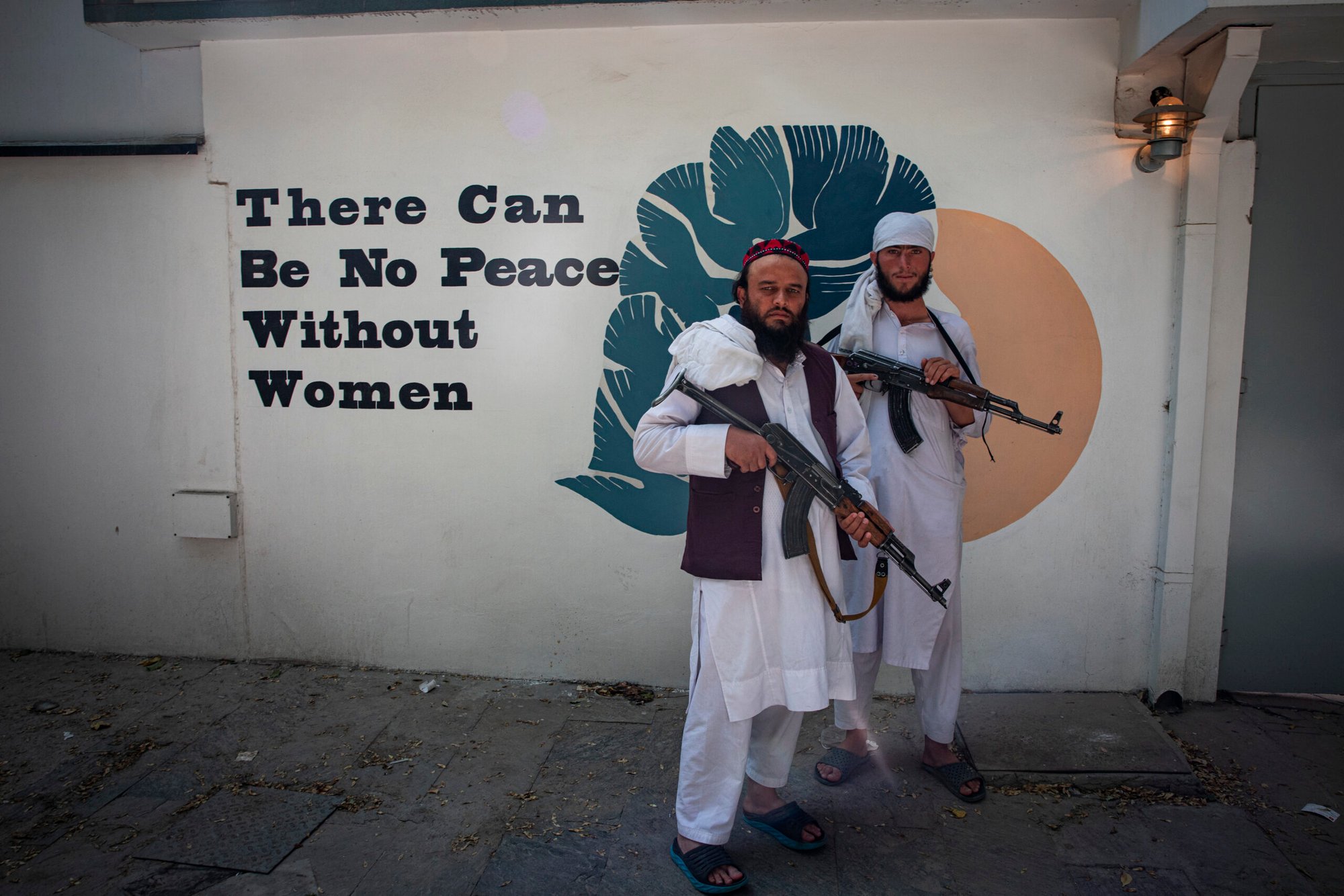
© Afshin Ismaeli
Kabul, Afghanistan, September 6, 2021.
Taliban fighters pose to the camera beside a “There can be no peace without women” graffiti written on the wall of Norwegian embassy in Kabul, Afghanistan.
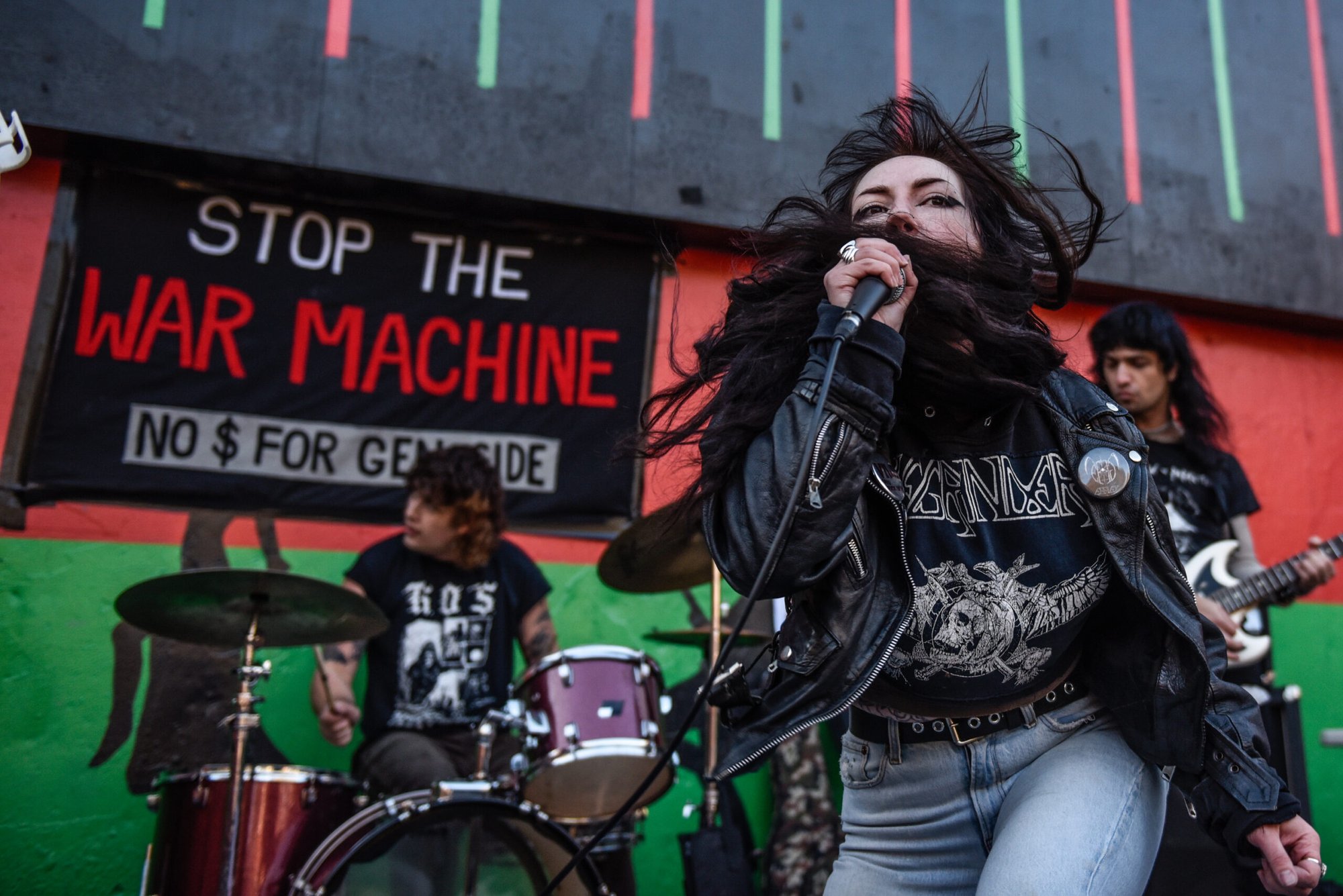
© Stephanie Keith
New York City, US, November 12, 2023.
The band Cross plays as people attend a hard core punk concert in support of Palestine at the Herbert Von King Park in the Bedford-Stuyvesant neighborhood in the Brooklyn borough in New York City.
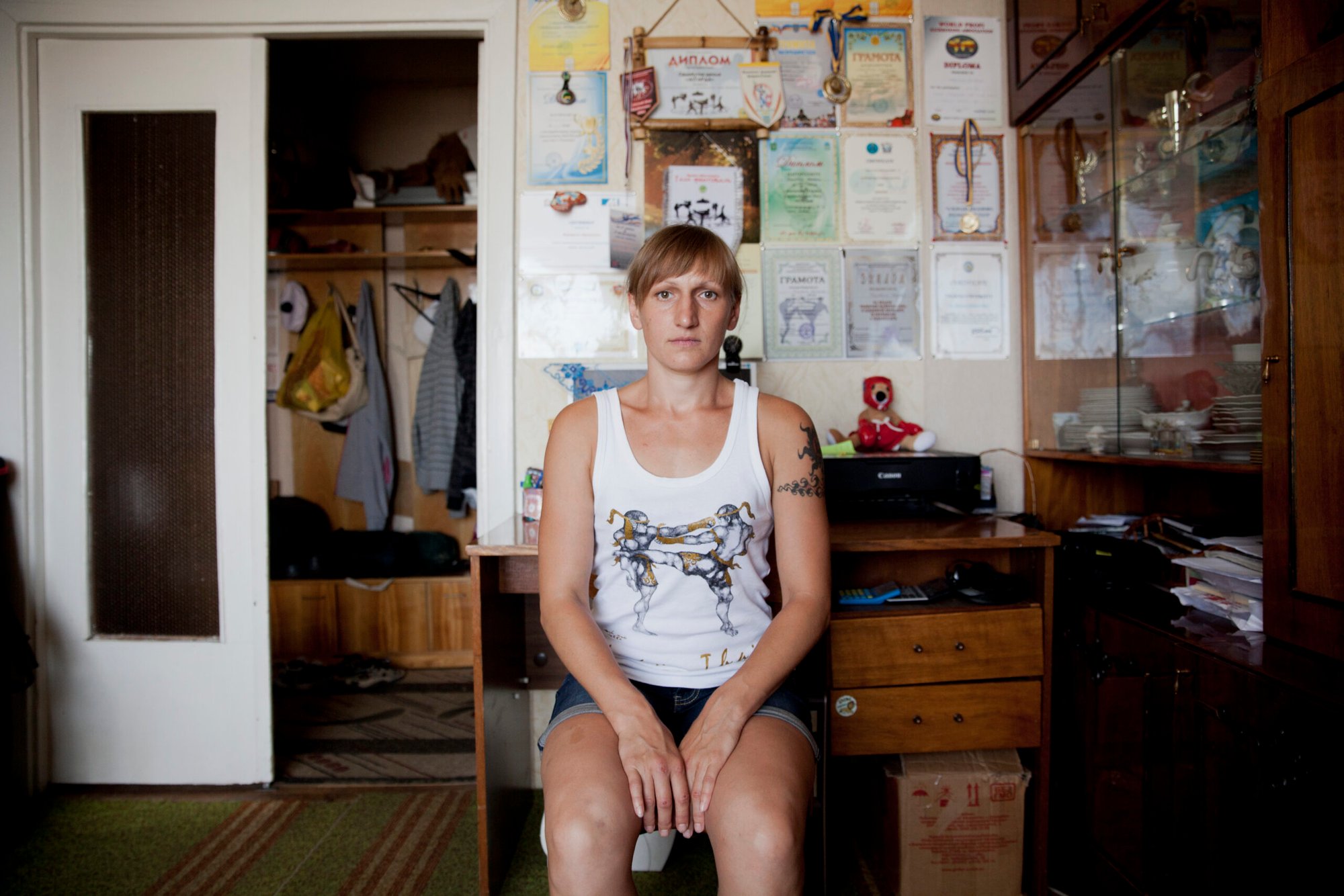
© Olga Kravets
Lviv, Ukraine, August 4, 2013.
Kateryna Tarnovska is a kickboxing world champion and a founder of Asgarda, a Ukrainian female martial arts group, whose philosophy is based on Vedic culture, and celebrates the image of a woman strong both psychologically and physically. When the war broke up in Ukraine, Kateryna did not stay aside and joined the infantry to defend her country from Russia’s invasion.
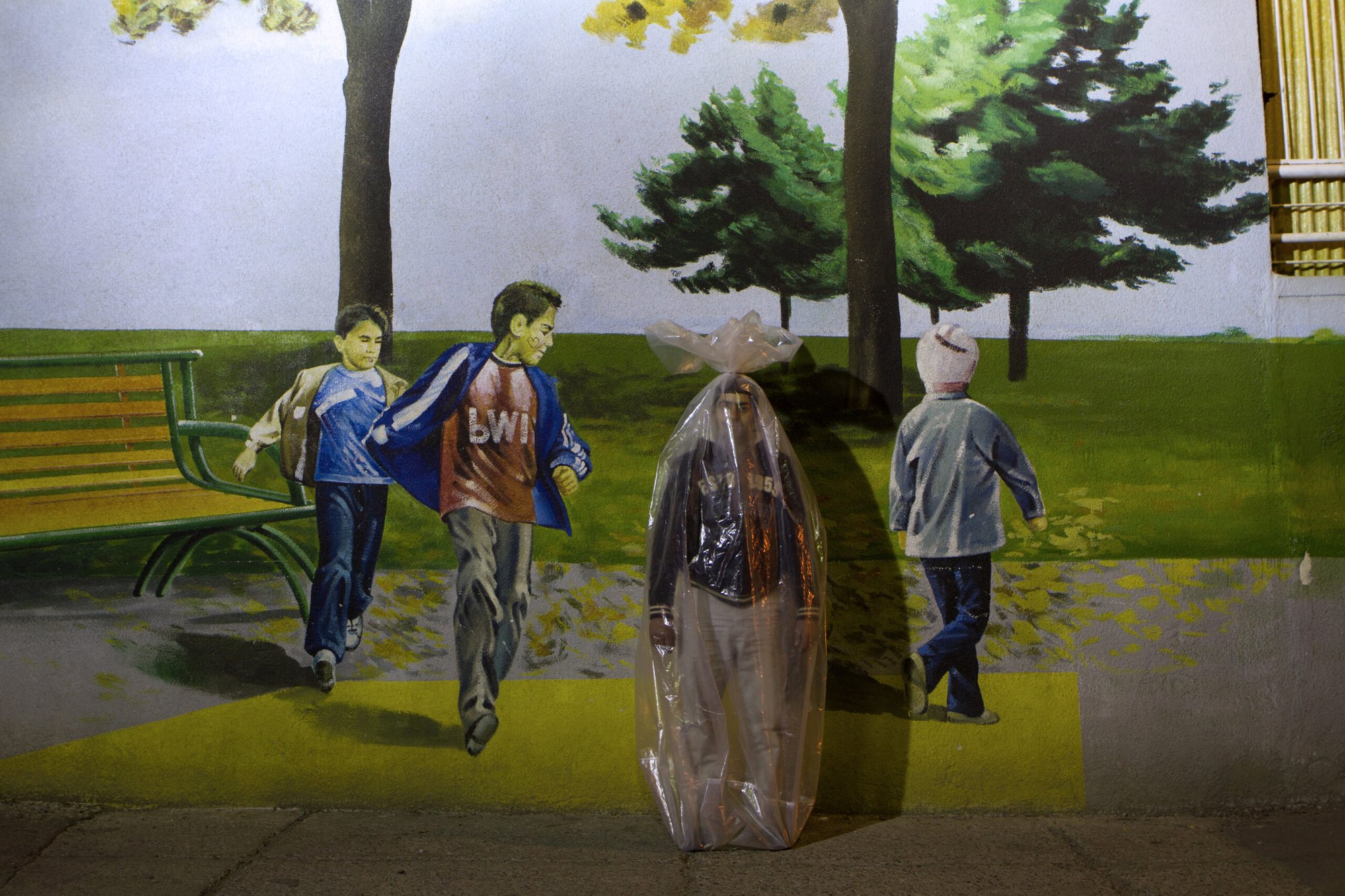
© Mo Zaboli
Lviv,
The documentary photographer Mo Zaboli, who fled from Iran, shows the oppressive atmosphere of confinement against the backdrop of an illusory, apparently functioning world in Tehran. These are the last images of the photographer before he had to leave Iran after a prison sentence. Together with a taxi driver, who at the same time is seen in the pictures as the person sealed in a plastic bag, Mo Zaboli relays his own experience with the view about in-between, where people who are in the state of being trapped and captured need to arrange their lives. One solution is to break out of the situation, the escape from the unbearable. But here too, there is also the decision about how the escape should be risked or whether it would just be better to go back. It is the beginning of the journey to in-between.

